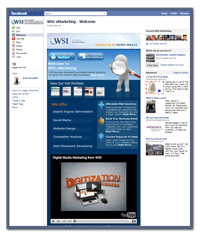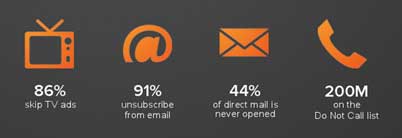
We’ve all heard the phrase before, ‘Stress Kills.’
As a business owner or a member of a small team in an SME it can be very difficult to ever ‘switch off.’ For many people it feels like there simply aren’t enough hours in a working day 9-6 in the office is enough to get most of your work done. But if a client wants something done by tomorrow you’ll work until 10pm to have it sorted. You never plan to work on the weekend but somehow you’ll find most of Sunday taken up by answering emails, planning for the next week and preparing materials for your next engagement.
None of these practices are ‘bad.’ Infact they can help cultivate you a great reputation as a real go-getter, someone who works hard and always has everything done. There are two key issues with this kind of lack of balance in your life and in your workplace’s culture. The first is that it can cause burnouts, stress really is a killer and with the 45+ age range making up over 50% of the small business owners in the UK it is something that bears thinking about. The last thing most small business owners and founders are thinking about is their health, they’re far more concerned with their businesses health and that can be deadly.
Pushing yourself too hard can not only be detrimental to your health but also to your work. Everyone needs time to recharge and switch off, otherwise you burn out. By setting limits and ensuring you have time away from work you will be that much more focused when it comes time to really crack on with business. This can take many forms. Making sure you get away from your desk for 45 minutes at lunch and don’t talk work on your break. Not answering emails after 6 or making a hard and fast rule that you don’t work on Sundays.
These kind of rules can be hard to stick to for a workaholic. You must come to the realisation that there will always be work to done, when you run your own business you’re probably always going to feel snowed under. It’s key to remember why you decided to be your own boss. For most it’s because they didn’t want to answer to someone else, they wanted more out of life and didn’t like their working environment. If you’re honest with yourself, does a 100 hour work week satisfy those criteria? Are you your own boss or are you slaving away every hour, constantly stressed?
As a boss or senior employee you must also consider how your example and expectations reflect on and effect your employees. Everyone wants to see a boss that works hard, but one that never clocks off? One that is always stressed? Most employees look to their seniors for an example of how to behave, if you take a working lunch every day then you cultivate an atmosphere where that is expected unless you go out of your way to tell your staff to take a break.
A strong work-ethic is an admirable trait but no matter who you are, allowing work to become all consuming will hurt your health, your relationships and in the end it will hurt your business. If you can allow for it flexible working and tele-commuting can go a long way to helping the work-life balance of your employees and increasing employee satisfaction.
As a small employer hiring and losing staff can take a big toll on your finances, this means once you’ve taken the decision to take on and invest in a staff member you want to ensure you retain them. In our office we allow for flexible working as much as we can and working from home when the situation demands it. Depending on your business this may not be possible, but by showing employees you understand the difficulties they face balancing work with homelife, especially when there are children involved you build loyalty to the business.
Here are our 5 tips for keeping a good Work-Life balance in your business for yourself and your employees
1. Plan The Day
To-Do lists not only make you and your staff more productive but they give structure to the day. Having regular scheduled meetings and rituals help keep you and your staff on track. Add tasks to the list as you get them, cross them off as they’re done. Though it sounds childish keeping track of what you have achieved through the day it can really help with a sense of accomplishment at the end of the day and be that boost that let’s you say it’s ok to clock off. What remains of the list will be there for tomorrow, you’re not losing anything. By keeping a ‘rolling’ to do list rather than a static list for each day you avoid the temptation to stay late or come in extra-early to complete tasks for no reason other than that they are on the list.
2. Set Limits and Stick To Them
There will always be days you have to work late, clients you have to meet early and weekends you have to work. As a small business owner this is pretty much unavoidable. However you have to set yourself some hard and fast limits that help you to keep your balance in check. These take different forms for everyone. Maybe you make Sunday sacred or refuse to set your mind on work before you get to the office in the morning. You have to carve out some time that work never touches, you owe it to yourself.
3. Learn To Say No
You don’t always have to feel guilty about saying no, this goes for both your work and your personal life. If you gain a reputation for being a hard worker or someone that works late you might find people have raised expectations of you. This can be a good thing, but it can also lead to them heaping more and more work on you. Doing the ‘extra credit’ work is a good thing, but only if you’re getting that extra credit. If you find yourself working longer, harder and more often than those around you without any compensation or recognition it’s time to say no. This goes for your personal life aswell. Serving on the PTA at your childs’ school or agreeing to organise parties can feel like a responsibility you can’t shirk, but you need your personal time to unwind. If your time away from work is just as stressful as it is at work then you have no balance! Just a work/work-by-another-name balance!
4. Use, Abuse and Refuse Technology
Smartphones are wonderful things, you can check your email on the go, have them direct you to your next meeting, have your full calendar and client proposal all on there. Telecommuting allows for flexibility around working hours and travel distances. Skype means you can talk to clients all over the world any time quickly and easily. This is all brilliant. You should use and abuse Tech to make your life as easy as possible. However it should never rule your life. I think all of us are guilty of reading work emails on our phones at 5pm on a Saturday simply because they’re there. I’ve known people take business Skype calls at 11pm because of time differences. Just because you can doesn’t mean you should, it’s not a bad thing to make yourself unreachable for a few hours on your day off.
5. Work at Work, Enjoy Your Downtime
Keeping work and home-life separate can be a difficult feat, taking the odd personal call at work doesn’t harm anyone. Likewise answering the odd email at home isn’t the end of the world. What is key is that you are differentiating work and home. One of the easiest ways to do this is to actually do something in your downtime. So many people will simply lounge around on their day off, maybe complete a couple of chores and head to the shops. By doing things you enjoy in your downtime rather than simply catching up with the housework or marathoning the latest program available on Netflix, you energise yourself. Of course it’s a matter of each to their own but having plans and something to look forward to can really help you get through a long week of work. Having these plans also helps to keep work and home life separate. You won’t be thinking about answering emails if you’re kayaking, playing a round of golf or learning to Tango. If you’re just sat in a room watching TV and playing on your phone, your work phone, with all your emails on, well that’s a different story!
Related Post
Effective Facebook Marketing...
With over 600 million users, Facebook represents the single most connected platform on...
- March 1, 2011
- By Nadine Thomas
- Latest Online Trends
A business strategy...
I’m always surprised when a business owner tells me that they don’t have a business...
- August 13, 2014
- By Nadine Thomas
- Business Growth
Pinterest For Small Business
I’m a small business, why do I need Pinterest? A common question I am asked, the answer...
- September 15, 2014
- By Mandy Baldwin
- Business Growth
Pinterest For Hospitality
Using Pinterest to market your hotel or restaurants? I worked for many years within...
- September 30, 2014
- By Mandy Baldwin
- Business Growth
Hootsuite’s Rylan Holey...
Rylan Holey, Partner manager at Hootsuite joined a panel of top global speakers at the...
- November 19, 2014
- By Nadine Thomas
- Digital Marketing
Hubspot’s Conor Douglas...
Conor Douglas, Hubspot’s International Channel Manger joined the WSI Digital Summit on...
- November 19, 2014
- By Nadine Thomas
- Business Growth













Leave a Comments